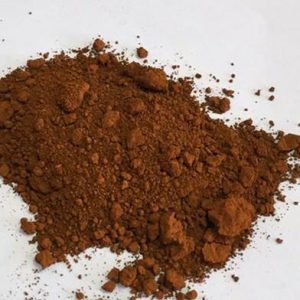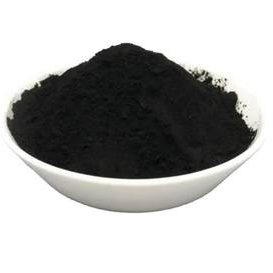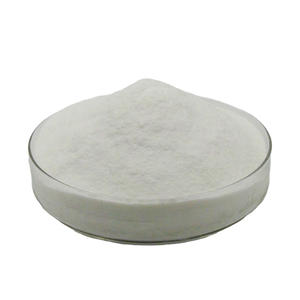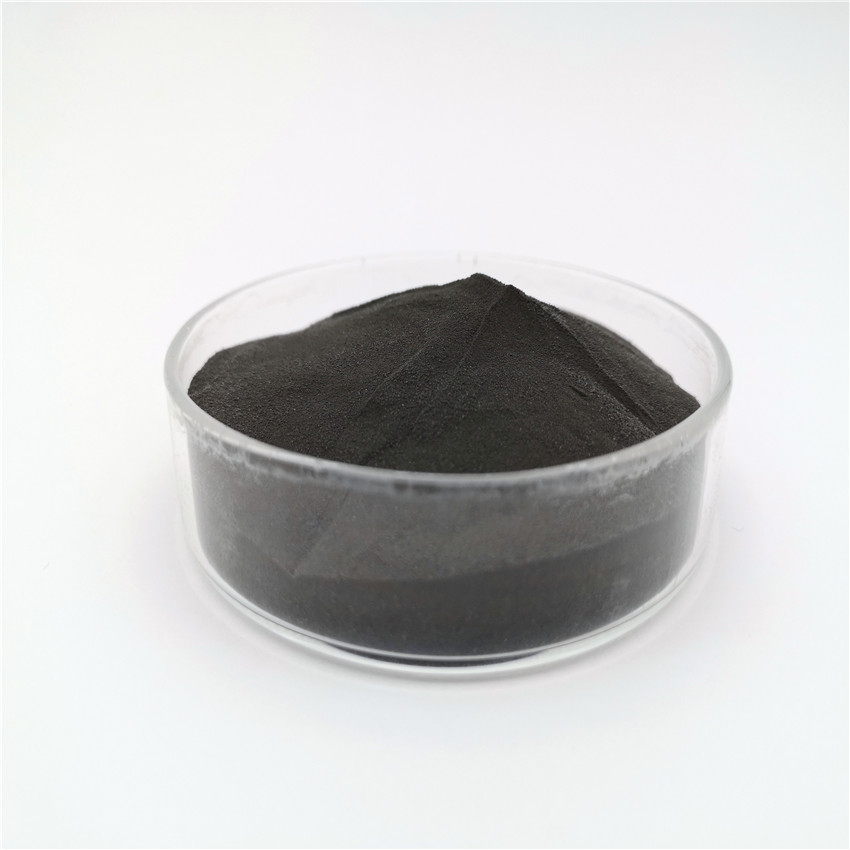Safe and reliable laboratory chemicals | RBOSCHCO- Chemicals Online
PRODUCT PARAMETERS
Description
| Boron Carbide Properties | |
| Other Names | B4C, B4C powder, black diamond, boron carbide powder, boron-carbon refractory ceramic |
| CAS No. | 12069-32-8 |
| Compound Formula | B4C |
| Molecular Weight | 55.26 |
| Appearance | Gray to Black Powder |
| Melting Point | 2763 °C |
| Boiling Point | 3500 °C |
| Density | 2.52 g/cm3 |
| Solubility in H2O | Insoluble |
| Electrical Resistivity | 0 to 11 10x Ω-m |
| Poisson’s Ratio | 0.17-0.18 |
| Tensile Strength | 350 MPa (Ultimate) |
| Thermal Conductivity | 31 to 90 W/m-K |
| Thermal Expansion | 4.5 to 5.6 µm/m-K |
| Vickers Hardness | 26 Mpa |
| Young’s Modulus | 240 to 460 Gpa |
| Exact Mass | 56.037222 |
| Boron Carbide Health & Safety Information | |
| Signal Word | Warning |
| Hazard Statements | H332 |
| Hazard Codes | Xi |
| Risk Codes | 20 |
| Safety Statements | 22-39 |
| RTECS Number | N/A |
| Transport Information | N/A |
| WGK Germany | 3 |
Overview of Boron Carbide Nanoparticles Nano
Boron Carbide Nanoparticles (Nano B₄C) refer to ultra-fine particles of boron carbide material with dimensions typically ranging from 1 to 100 nanometers. These nanoparticles exhibit unique physical and chemical properties due to their small size, making them highly desired in various applications.
Boron Carbide Nanoparticles possess exceptional hardness, thermal stability, and chemical inertness. They are known for their high resistance to wear, corrosion, and oxidation, making them suitable for use in harsh environments. Additionally, these nanoparticles exhibit excellent thermal conductivity, making them useful in heat transfer applications.Boron Carbide Nanoparticles are ultra-fine particles of boron carbide with unique physical and chemical properties, making them highly useful in various applications ranging from abrasives to advanced composites.
Features of Boron Carbide Nanoparticles Nano
Exceptional Hardness: Boron Carbide Nanoparticles exhibit much higher hardness than most other materials, making them suitable for abrasive and wear-resistant applications.
High Thermal Stability: These nanoparticles can withstand high temperatures without significant degradation, making them useful in high-temperature environments.
Excellent Chemical Inertness: Boron Carbide Nanoparticles are resistant to chemical attacks, corrosion, and oxidation, ensuring durability in harsh chemical environments.
Enhanced Thermal Conductivity: Due to their small size, these nanoparticles have improved thermal conductivity, making them effective in heat transfer applications.
Radiation Resistance: Boron Carbide Nanoparticles exhibit resistance to radiation damage, making them suitable for use in nuclear reactors and other radiation-exposed environments.
Unique Optical Properties: These nanoparticles may exhibit unique optical properties, such as absorption or scattering of light, making them useful in photonic and optoelectronic applications.
Application of Boron Carbide Nanoparticles Nano
Abrasive Materials: Boron Carbide Nanoparticles are used in abrasives and cutting tools due to their exceptional hardness and wear resistance.
Coatings: These nanoparticles can be used to enhance the hardness, wear resistance, and corrosion resistance of surfaces through coating applications.

Application of Boron Carbide Nanoparticles Nano
Advanced Composites: Boron Carbide Nanoparticles can be incorporated into composites to improve their mechanical properties, thermal stability, and radiation resistance.
Electronic Devices: Due to their unique electrical properties, these nanoparticles can be used in electronic devices, such as field emitters and semiconductors.
Nuclear Reactors: The radiation resistance of Boron Carbide Nanoparticles makes them suitable for use in nuclear reactors, where they can be employed in fuel cladding, control rods, and other critical components.
Biological Applications: Boron Carbide Nanoparticles have also shown potential in biological applications, such as drug delivery and cancer therapy, due to their ability to target specific cells and tissues.

Application of Boron Carbide Nanoparticles Nano

Company Profile
NANOTRUN(www.rboschco.com) is a trusted global chemical material supplier & manufacturer with over 12-year-experience in providing super high-quality chemicals and nanomaterials, including boride powder, nitride powder, graphite powder, sulfide powder, 3D printing powder, etc.
The company has a professional technical department and Quality Supervision Department, a well-equipped laboratory, and equipped with advanced testing equipment and after-sales customer service center.
If you are looking for high-quality Boron Carbide Nanoparticles Nano, please feel free to contact us or click on the needed products to send an inquiry.
Payment Term
L/C, T/T, Western Union, Paypal, Credit Card etc.

Shipment Term
By sea, by air, by express, as customers request.
FAQ
Q1
What are the primary characteristics of Boron Carbide Nanoparticles that distinguish them from other nanoparticles?
Answer: The primary characteristics of Boron Carbide Nanoparticles that distinguish them from other nanoparticles are their exceptional hardness, high thermal stability, and chemical inertness. These properties make them unique and suitable for various demanding applications.
Q2
How does the performance of Boron Carbide Nanoparticles compare to other abrasive materials?
Answer: The performance of Boron Carbide Nanoparticles compares favorably to other abrasive materials due to their superior hardness and wear resistance. They can maintain their performance for longer durations and provide better results in abrasive applications.
Q3
What are the unique optical properties exhibited by Boron Carbide Nanoparticles?
Answer: Boron Carbide Nanoparticles may exhibit unique optical properties such as absorption or scattering of light. These properties make them potential candidates for photonic and optoelectronic applications where light interaction with matter is crucial.
Q4
How are Boron Carbide Nanoparticles structured, and what gives them their unique properties?
Answer: Boron Carbide Nanoparticles are structured with boron and carbon atoms arranged in a specific crystal lattice. This unique atomic arrangement confers exceptional hardness, thermal stability, and chemical inertness to these nanoparticles, making them stand out from other materials.
Q5
Can Boron Carbide Nanoparticles be used in biological applications, and if so, how?
Answer: Yes, Boron Carbide Nanoparticles have shown potential in biological applications such as drug delivery and cancer therapy. They can be designed to target specific cells and tissues due to their small size and unique properties, making them useful for precise and effective treatment.
REQUEST A QUOTE
RELATED PRODUCTS

Titanium Carbide Nanoparticles Nano TiC Powder CAS 12070-08-5

Copper Nanoparticles Nano Cu Powder CAS 7440-50-8

Zirconium Carbide Nanoparticles Nano ZrC Powder CAS 12070-14-3

Polytetrafluoroethylene Powder PTFE Powder CAS No 9002-84-0

Titanium Nanoparticles Nano Ti Powder CAS 7440-32-6


